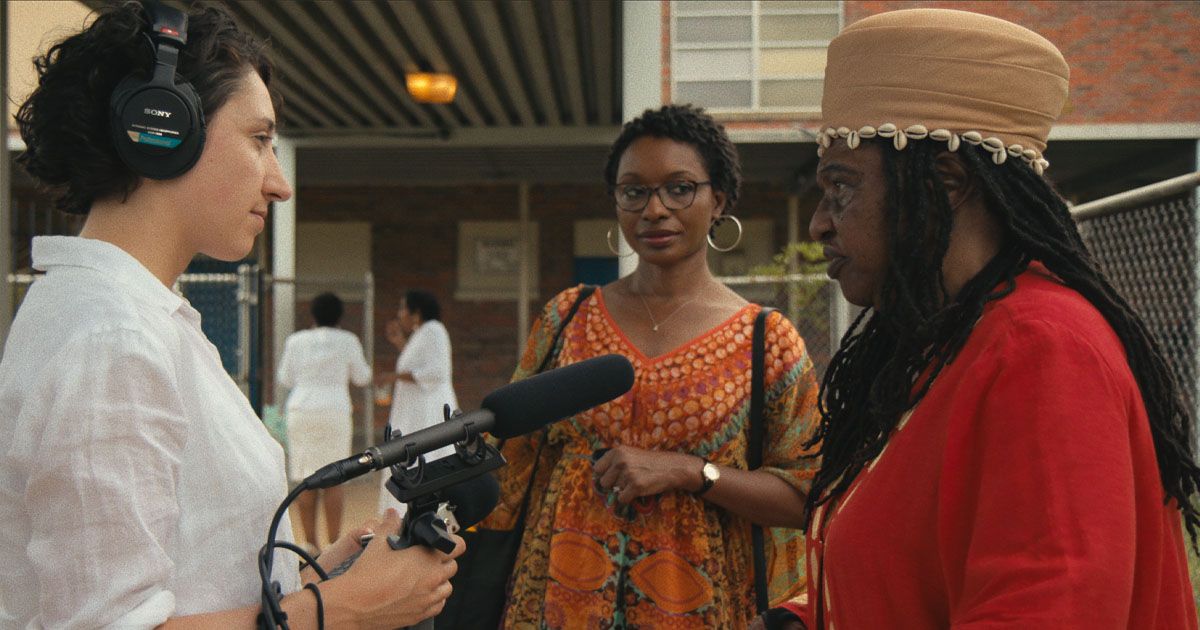As the world grapples with changing tides of politics, economics, and social movements, one question constantly comes back up to the surface: how has history been written in the eye of the victor? Often narratives written by a majority dominated the overarching history of what is and is perceived as accurate history, and with that comes a slew of biases, racist attitudes, and prejudices adopted by those in power. However, while some histories may have been tragically lost in the sands of time, or deliberately destroyed to hide something, others have managed to survive through documentation, oral histories, and art. Netflix’s newest documentary, Descendant, demonstrates how an entire thread of African-American history was kept alive despite the odds.
MOVIEWEB VIDEO OF THE DAY
A native of Mobile, Alabama, not too far from where the documentary’s subject takes place, director Margaret Brown took home the Special Jury Award for Creative Vision at the 2022 Sundance Film Festival for Descendant. Netflix acquired the documentary at the festival, which was produced by Michelle and Barack Obama’s production company. The film’s executive producers include Jeff Skoll, Diane Weyermann, Kate Hurwitz, and Questlove, among others. Executive Producer Questlove, who previously took home an Academy Award for his documentary Summer of Soul, has a direct connection to the documentary’s subject through his ancestors.
Before its official release in theaters and on Netflix in October, the film enjoyed a run at the New York Film Festival alongside another notable that operates within a similar context: Till. Documentaries and movies with these subjects are more important than ever, especially as those still alive slowly begin to forget the roots and origins of issues still faced today by Black communities in the United States. By tying together the past and present, Descendant seeks to humanize a story previously suppressed by the people who technically originated it: Southerners who brought Africans to the United States to make them slaves.
Related: Exclusive: Chinonye Chukwu on the Power of the Black Female Gaze in Film and Till
Recovering a Lost Past
Netflix
In Descendant, modern life meets a past that is not as distant as one would imagine. The documentary opens with shots of a house, scattered with pictures in color and cultural artifacts, while a candid interview reveals that there is hope for finding a ship that matters immensely to an entire community. Some Africans survived the passage from Africa to North America, meeting a fate that history books know too well, but others perished along the way. Descendant is the story of those who survived and their descendants who are still searching for evidence of their origins. In the community depicted here, they search the oceans for evidence of their beginnings, the root of their history in the United States.
This documentary’s setting is Africatown, a community just north of Mobile, Alabama. In the 1860s, right before the Civil War, the town was founded by a group of West Africans that comprised the very last shipment of slaves to the United States—one that was illegal at the time. They were brought on a ship called the Clotilda, which, due to the nature of the operation, became an open secret in the region. Dismantled and destroyed upon achieving its purpose, Clotilda’s destruction ensured that the people in charge of selling the slaves were able to get away with a clean break, and the story of the ship was passed on orally by the descendants of the slaves to remember what happened to them. Too often Black histories are erased and forgotten, and the Clotilda, if the victors had their way, would have been completely wiped off of the historical records if not for this informal form of record-keeping.
As Descendant documents the physical search for the shipwrecked Clotilda, it brings to the forefront those who tediously kept its memory alive. The work of anthropologist and writer Zora Neale Hurston, who was forgotten and often cast aside during her lifetime, preserved the account of one of the last living founders of Africatown, a survivor of the Clotilda when he was an old man in the 1930s. Her work on the town, titled Barracoon, was refused by publishers and only found a home in the publishing world in 2018. In one way, this can be interpreted as a continued denial of history, as there were no legal records or traces of the Clotilda left behind after its destruction.
However, by 2018, there was immense hope and increasing evidence on where the ship might be located, verifying the accounts of Africatown’s founders. And when the ship is indeed finally found, lifting an emotional weight off of the shoulders of the town’s occupants, so begins disagreement about what to do with this information. Some propose using it as a basis for tourism in the region, while others want to fight against the impacts of environmental racism and zoning faced by the town. Descendant plays a balancing act between the story of the ship and the issues faced by the town that is still informed by corrupt practices.
Related: The Top 10 Documentaries of 2021
A Perfect Balance of History and Modernity
Netflix
One of Descendant’s most remarkable strengths is how it applies the knowledge of a plethora of people from varying backgrounds. Like many documentaries with similar subjects, Descendant uses a mix of interviews, archival footage, and objects like maps, documents, and pictures to accurately convey the historical elements. What is done exceptionally well is the balance between the historians being interviewed, who might have a more academic approach toward what happened with Clotilda and Africatown, and the actual descendants themselves. It adds a personalized touch to the inner workings of this story,, as soon as people felt safe to tell the stories of their ancestors and relatives, they began to speak and lecture about their family’s lived experiences. By creating the descendants a platform of their own, alongside those who’ve devoted their research and life to this topic, it creates a conversation that they would have been previously denied access to due to the circumstances.
Incorporating Zora Neale Hurston’s research, too, adds another dimension to this tale. Hurston, who came to the town when she was a young woman starting her career, took film footage of Cudjo, the last survivor of the Clotilda, and the town’s occupants. She is specifically called out as the first Black female filmmaker, and she largely devoted her career to documenting Black culture and traditions in their natural environments. Descendant also clearly weaves the thread between past and present. This manifests in the ancestor of the ship’s captain, who, despite being accepted by the community during the event he shows up for, parrots out a misguided phrase—that the owners of these slaves and the system did nothing to harm the slaves. Although this statement may come from a place of genuine ignorance, due to the lack of teaching of Black history and the true horrors of slavery, it shows how this form of myth-making is still alive even with a new generation.
At the same time, Africatown faces threats many Black communities, especially in lower-income areas, are increasingly spotting. Polluted air, discriminatory policies to slowly wipe out the native population, and increased risk of health problems due to everyday conditions are quickly becoming a reality for many Black communities. In Baltimore, where poorer Black neighborhoods often get a bad reputation in the media, they are up to six degrees warmer and more polluted than other wealthier neighborhoods in the same city. Africatown, too, faces environmental racism, and that will severely harm the population. With tight editing and a savvy way of telling its story, Descendant has marked itself as another documentary in 2022 that must be watched.
Now, more than ever, its content is relevant, especially as the town faces the chance of completely disappearing off of maps due to what is happening around it. Not only is this a story about slavery, but also perseverance. No matter how hard this story was threatened by external forces, the verbal existence of a ship, one that was burned and dumped into a river, continued onwards after its physical death. In the United States now, in 2022, this notion seems even more relevant as history continues to get rewritten in school curriculums and books are banned across the nation. In Alabama, where Africatown is located, a recent bill proposes that even if a teacher touches upon the topics of sexism, racism, or anything dubbed divisive in the context of American history, they can immediately lose their job. The existence of documentaries like this is direct defiance of suppression.
Descendant is available to stream on Netflix as of October 21, 2022.
You can view the original article HERE.






























